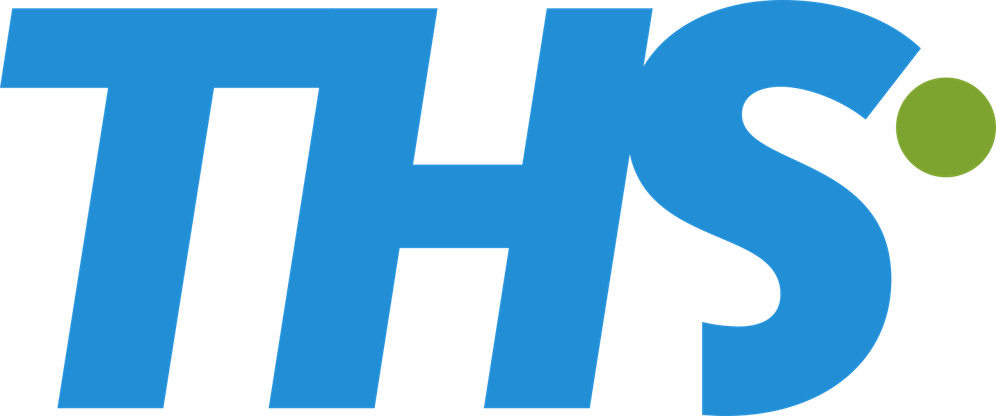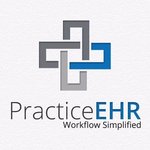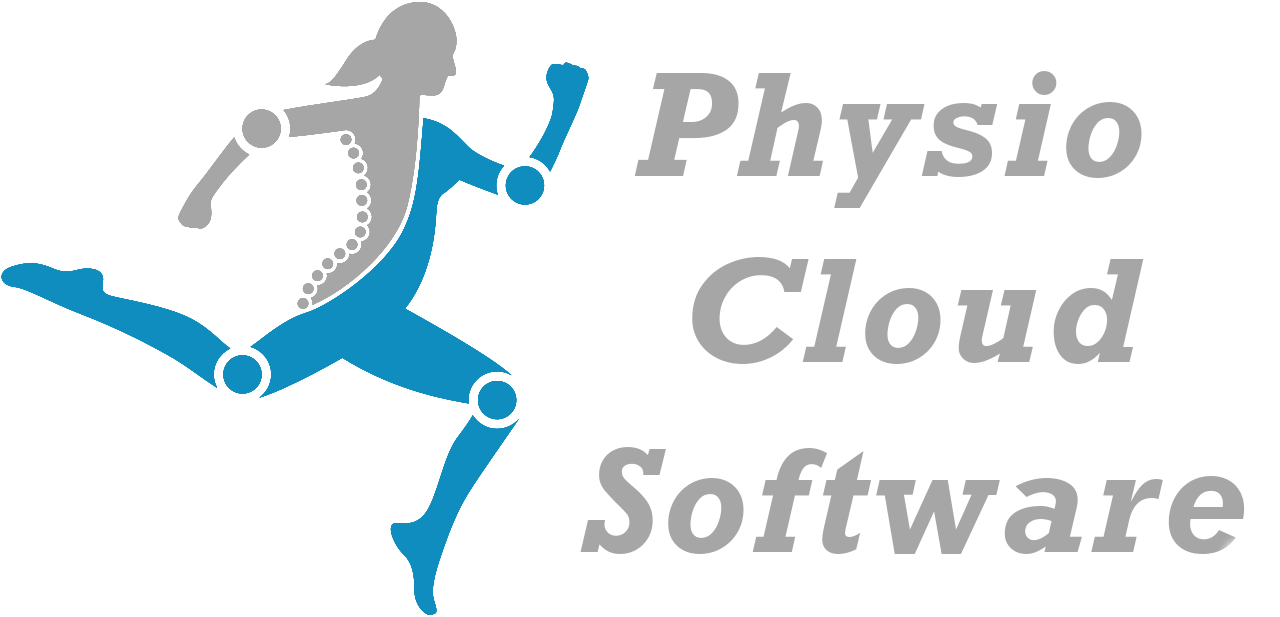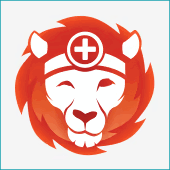What Is Medical Practice Management Software?
Medical practice management software is a complete solution for streamlining and optimizing a medical practice's daily operations. This program provides a one-stop solution for all administrative activities associated with running a medical institution, including appointment scheduling, patient data administration, invoicing, and revenue management.
The primary purpose of medical practice management software is to boost efficiency, minimize paperwork, and improve communication within the clinic. It enables the seamless flow of information between various departments and staff members, resulting in speedier reaction times and more precise data tracking. This program has several major features, including scheduling and patient administration, electronic health records (EHR) management, billing and invoicing, claims processing, and reporting and analytics.
These features not only help to automate operations and reduce human error, but they also provide useful information that can be used to make educated practice decisions. Furthermore, medical practice management software is intended to be user-friendly and configurable, making it appropriate for practices of any size or specialty. It can also work with other systems, such as electronic medical records (EMR), telemedicine platforms, and patient portals, to establish a unified workflow.
Investing in medical practice management software can provide various benefits to a business, including better patient care, more revenue, and higher efficiency. It enables healthcare personnel to focus on providing high-quality treatment while the software performs administrative responsibilities. With so many options on the market, consumers must thoroughly examine their demands before selecting the program that best meets them.
What Are The Recent Trends In Medical Practice Management Software?
The healthcare sector is always evolving, as is the technology used to administer medical operations. As a result, healthcare professionals must keep up with the most recent innovations in medical practice management software. This not only ensures efficient and successful management of their practice, but also allows them to keep ahead of their competitors.
Below are some recent trends in medical practice management software that every buyer should be aware of:
1. Cloud-Based Solutions: With the growing use of electronic health records (EHRs) and remote work, cloud-based practice management software has grown popular. It enables simple access to patient data and effective communication among healthcare personnel.
2. Mobile Applications: With the proliferation of smartphones, medical practice management software now includes mobile applications. This enables physicians to access patient data, plan appointments, and handle invoicing on the go.
3. Artificial Intelligence (AI): AI technology is being integrated into practice management software to automate processes like appointment scheduling, paperwork management, and billing error detection. This not only saves time, but also lowers the possibility of human error.
4. Patient Involvement: With a focus on patient involvement, practice management software now includes features like patient portals, appointment reminders, and online payment alternatives. This enhances the patient experience and increases satisfaction.
5. Integration With EHRs: Practice management software is being integrated with EHRs to ensure that patient information flows seamlessly. This enables more efficient communication among healthcare providers, avoids duplicate data entry, and ensures data accuracy.
6. Telemedicine: With the rise of telemedicine, practice management software now includes facilities for video conferencing and remote patient monitoring. This enables healthcare providers to perform virtual consultations and monitor patients remotely, hence boosting access to care.
7. Data Security: With the rise of cyber threats, data security has become a primary focus for practice management software. Look for software that includes advanced security features like encryption, access limits, and scheduled data backups.
Benefits Of Using Medical Practice Management Software
As a healthcare provider, running a medical practice can be a difficult and time-consuming undertaking. The administrative workload, which includes patient scheduling and billing as well as staff management and medical record maintenance, can frequently overshadow the essential objective of providing great patient care. However, with advancements in technology, there is now a solution to help streamline and simplify these tasks: medical practice management software. This comprehensive solution provides a variety of benefits that can boost your practice's efficiency and productivity while also improving the overall patient experience.
Let's take a deeper look at the main advantages of using medical practice management software:
1. A Streamlined Scheduling Process: One of the most major benefits of using medical practice management software is automated appointment scheduling. This eliminates the need for manual scheduling, lowering the risk of human mistake while ensuring accurate and timely appointments. The program also supports real-time updates and synchronization with various calendars, making it easier for patients to plan appointments and prevent scheduling conflicts.
2. Simplified Billing And Revenue Management: Managing billing and revenue can be a time-consuming process for any medical business. Practice management software allows bills to be prepared automatically and payments to be processed electronically, minimizing paperwork and the risk of missing or delayed payments. This also enables more accurate revenue tracking and financial management for your practice.
3. Improved Patient Communication: Medical practice management software improves patient communication by offering features such as online appointment booking and automated reminders. Patients can simply book appointments, receive reminders, and view their medical data online.
4. Effortless Medical Record Keeping: The days of manually managing patient data and files are over. This not only saves time for both patients and staff, but it also improves the whole patient experience, resulting in higher patient satisfaction and retention. Practice management software provides a single platform for electronic medical data, allowing healthcare providers to seamlessly access and update patient details. This not only saves time, but also improves the accuracy and security of patient data.
5. Improved Practice Efficiency: Medical practice management software automates and streamlines different administrative duties, increasing the overall efficiency of your clinic. With less time spent on manual activities, employees can concentrate on providing quality medical care, shortening wait times, and enhancing patient satisfaction.
Important Factors To Consider While Purchasing Medical Practice Management Software?
When it comes to running a medical practice, the correct software is essential for efficiency, organization, and success. Choosing the appropriate medical practice management software can be difficult, but keeping a few essential aspects in mind will help you make an informed decision. First and foremost, think about the specific demands of your medical practice. What main functions and features do you need in software?
This could include appointment scheduling, patient information management, billing and invoicing, inventory management, and other tasks. Next, ensure that the software is compatible with your existing hardware and operating system. You don't want to invest in software just to discover that it won't work with your current equipment. Another crucial consideration is the software's ease of use.
It should be simple and straightforward to use, with a user-friendly interface. This is especially significant if you have a team of employees who will be utilizing the program on a regular basis. As with any purchase, price is an important issue. Compare various software solutions and price models to locate one that is within your budget. Keep in mind that certain applications may demand a monthly or annual subscription charge, whereas others may be purchased once.
Security is also an important element to consider. Because medical practice management software involves sensitive patient information, it is critical that it has robust security mechanisms in place to protect against cyber threats. In addition, examine the software company's customer support and training. Will they offer continuing support and assistance? Is there a training program in place to help your employees understand how to utilize the software effectively?
These are crucial considerations for a smooth transition and optimal program utilization. Finally, study the evaluations and testimonials from other medical practices that use the software. This can provide useful information about the software's effectiveness, simplicity of use, and customer support. By considering these variables and conducting extensive research, you can make an informed decision and select the best medical practice management software for your clinic.
What Are The Key Features To Look For In Medical Practice Management Software?
Medical Practice Management Software (MPMS) is a critical tool that helps healthcare practitioners streamline administrative processes, improve patient care, and increase overall efficiency. With so many options available in the market, it might be difficult for customers to select the best MPMS for their practice.
To make the process easier, we've created a list of crucial elements that purchasers should look for in MPMS:
1. Appointment Scheduling: Medical practices rely on this function to properly organize patient appointments. Look for an MPMS that makes it easy to schedule, reschedule, and cancel appointments, as well as features like waitlist management and automated reminders to reduce no-shows.
2. Electronic Medical Records (EMR): A solid EMR system is an essential component of MPMS. It should let healthcare providers to securely store and retrieve patient information, such as medical history, test results, and treatment plans, in digital form.
3. Billing And Invoicing: To simplify the billing process, seek for an MPMS that interacts with insurance carriers and allows for the rapid and accurate generation of invoices, claims, and statements. It should also include features like automated payment reminders, payment tracking, and real-time financial reporting.
4. Reporting And Analytics: Advanced reporting and analytics technologies can provide useful information about the practice's performance, finances, and patient outcomes. Look for an MPMS that has configurable dashboards, real-time data tracking, and performance indicators to assist you in making data-driven decisions.
5. HIPAA Compliance: Because healthcare data is extremely sensitive, it is critical to select an MPMS that follows HIPAA requirements. It should have strong security procedures in place to keep patient data safe from data breaches and cyber attacks.
6. Telehealth Integration: In today's world of remote consultations, an MPMS that includes telehealth integration can be extremely beneficial to medical practices. Look for tools like video conferencing, virtual waiting rooms, and e-prescriptions to help you improve your virtual care skills.
7. User-Friendly Interface: A user-friendly interface is essential for delivering a consistent user experience. To prevent a high learning curve for your team, choose an MPMS with an intuitive design, adjustable functionality, and easy navigation.
8. Training And Support: In addition to the software's features, you should examine the vendor's training and support. To ensure that the software is implemented and used smoothly, look for a provider who offers excellent customer service, access to training materials, and dependable technical support.
Why Do Businesses Need Medical Practice Management Software?
Medical practice management software is an essential tool for every healthcare-related organization. It is a comprehensive solution that assists healthcare professionals in streamlining their administrative and financial responsibilities, thereby increasing the overall efficiency and productivity of their practice. One of the key reasons organizations want medical practice management software is to automate and streamline their daily operations.
This program includes a variety of features like as appointment scheduling, billing and invoicing, patient record management, and inventory management, which eliminates the need for manual labor and reduces the likelihood of errors. Businesses that increase their automation can save time, resources, and effort, allowing them to focus on providing great patient care.
In addition to automation, medical practice management software assists firms in remaining organized and compliance with healthcare legislation. It enables them to securely store and handle personal patient information, guaranteeing HIPAA compliance. Furthermore, the program may provide customisable reports and analytics, which provide significant insights into the practice's financial and operational success.
These reports can be used to make sound business decisions, identify areas for improvement, and monitor progress over time. Another important feature of medical practice management software is the capacity to improve communication and collaboration inside the practice. It facilitates seamless communication across departments, enabling for quick and efficient decision-making.
The program also includes patient portals, which allow patients to access their medical records, schedule appointments, and connect with their healthcare providers, resulting in a more transparent and patient-centered approach to care. Furthermore, medical practice management software connects with electronic health records (EHRs), resulting in a single repository for all patient information. This integration removes the need to transition between systems, lowering the risk of errors and inconsistencies.
It also encourages a more comprehensive approach to patient care, in which healthcare providers have access to all pertinent patient data, allowing for better diagnosis and treatment. Overall, medical practice management software is an important investment for any healthcare-related organization. It increases not only efficiency and production, but also the quality of patient care. With its numerous features and benefits, businesses can streamline their operations, stay compliant, and provide better patient experiences, making it a must-have tool for all healthcare providers.
How Much Time Is Required To Implement Medical Practice Management Software?
The time necessary to adopt medical practice management software varies depending on a number of factors, including the size of your practice, the complexity of your workflows, and the precise features and customization choices you select. On average, a good deployment can take between 3 and 6 months. The first step in deploying medical practice management software is to determine your exact needs and requirements.
This includes evaluating your present workflows, identifying the issues you have, and defining the features and functionalities required to simplify your operations. Next, choose a reliable vendor and negotiate a contract, confirming pricing and terms. This can take anything from a few weeks to a few months, depending on how complex your agreement is. After the contract is finalized, the implementation procedure can begin.
This often includes data migration, training, and software customization to meet your specific requirements. This stage can last anywhere from four to twelve weeks, depending on the size and complexity of your business. Finally, once the software has been implemented, there will be a period of testing and fine-tuning to ensure that everything is working properly and that any difficulties have been resolved.
This could take another 2–4 weeks. The overall time necessary to establish medical practice management software ranges between 3 and 6 months. It is crucial to note that this timeline is subject to change due to unexpected obstacles or delays. To guarantee a successful implementation, collaborate together with your vendor and develop a strong plan.
What Is The Level Of Customization Available In Medical Practice Management Software?
When it comes to managing a medical practice, each business has unique needs and preferences. This is why customization choices are important when choosing practice management software. The level of customisation available in medical practice management software refers to the program's capacity to be modified to match the unique needs and workflow of a medical practice.
Most modern medical practice management software provides a great level of customization, allowing practitioners to tailor the software to their specific needs. This involves changing workflows, adding or removing modules, and tailoring the user interface to the practice's branding. One important customization option to look for in practice management software is the ability to create patient intake forms.
This enables practices to obtain relevant patient data and adjust it to their individual expertise. Another crucial aspect to consider is the option to personalize schedule templates, which can range significantly between medical practices. Customization possibilities also include billing and financial management. This includes the ability to define custom billing rules and price schedules, as well as interact with third-party billing systems.
The amount of customization possible in practice management software can significantly influence the cost. Typically, the more customisation possibilities a software provides, the greater its price. However, it is critical to consider the long-term benefits and savings of having fully adaptable software that can efficiently fulfill the specific needs of your business. When considering the extent of flexibility in practice management software, keep your individual needs in mind and prioritize the features that are most important to your practice. This can assist you select software that will effectively streamline your workflow and increase overall efficiency.
Which Industries Can Benefit The Most From Medical Practice Management Software?
Medical practice management software is an effective tool that can aid a variety of industries in the healthcare sector. This software includes functions such as scheduling, patient administration, invoicing, and reporting, which can help medical practitioners streamline and automate their workflows.
In this buyer's guide, we'll look at which sectors can profit the most from medical practice management software.
1. Hospital And Healthcare Systems: Every day, hospitals and healthcare systems deal with a significant number of patients, staff, and administrative chores. Medical practice management software can assist these organizations in scheduling patient visits, tracking medical records, processing insurance claims, and analyzing performance measures. This leads to higher efficiency, better patient outcomes, and a lower administrative load.
2. Private Clinics And Medical Practices: Private clinics and medical practices can also profit greatly from using medical practice management software. These activities frequently have limited resources and must enhance production. This software allows them to conveniently book appointments, handle patient data, and track invoicing and payments, so improving overall productivity and profitability.
3. Dental Practices: Dental practices can also benefit significantly from medical practice management software. Dentists can use this software to track patient appointments, manage treatment plans, and process insurance claims. It can also provide useful insights into the clinic's financial performance, allowing dentists to make more informed decisions about their practice.
4. Mental Health Practices: Medical practice management software can help mental health practitioners arrange patient appointments, keep electronic health records, and process insurance claims. This program also includes features like telemedicine, which allows mental health practitioners to deliver remote consultations to their patients.
5. Rehabilitation Clinics: Medical practice management software can help rehabilitation clinics that offer physical therapy, occupational therapy, and speech therapy. It can assist them with scheduling patient appointments, tracking treatment plans, and processing insurance claims. This can help therapists save time and effort while focusing on their patients.
Conclusion
Finally, investing in dependable medical practice management software is critical for any healthcare facility aiming to streamline operations, improve patient care, and boost efficiency. With a variety of features and functionalities, these software solutions can help healthcare professionals, administrators, and staff manage appointments, billing, patient data, and other tasks.
When selecting a medical practice management software, it is critical to thoroughly analyze the vendor, their support services, and the specific features that meet your practice's needs and goals. With careful research, demos, and customer reviews, you can make an informed selection and select the program that is best suited to your practice. Consider considerations such as interoperability with your existing systems, usability, and customization choices.
It's also important to assess the software's long-term benefits and return on investment, as well as the possibility of future updates and scalability as your practice grows. By carefully considering all areas of medical practice management software, you can ensure a successful adoption and a worthwhile investment for your business. We hope this buyer's guide has helped you find the right software solution for your medical business.






















